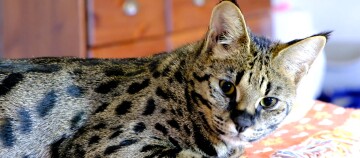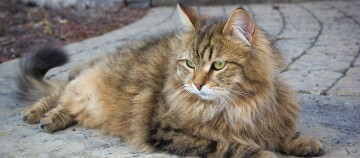What to Look for When Choosing a Cat - Find a Cat That Suits You
01.01.2024 - Reading time: 10 minutes
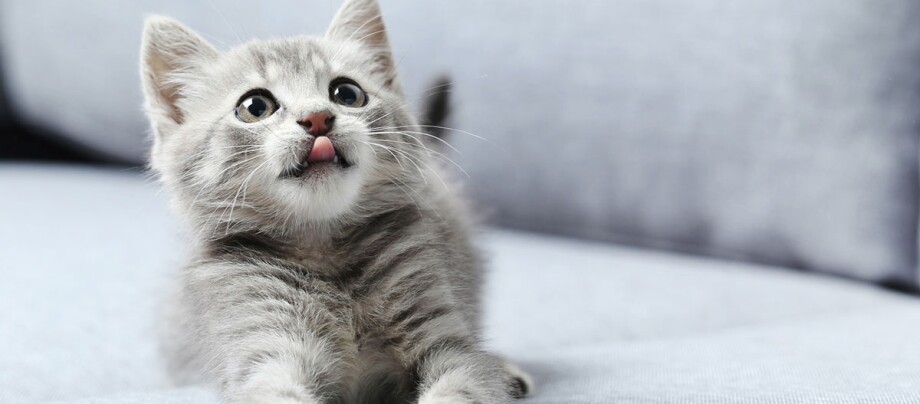
Which cat is right for me? Find out here the traits that distinguish cat breeds and what you should look for when choosing a cat!
- Do you want an animal roommate and have you already decided on a cat?
- Outdoor or house cat?
- What temperament are you looking for in your cat?
- How much experience do you have in cat training?
- How much time do you have for your cat and its care?
- Male or female?
- Solitary or several pets?
- How is the cat cared for while you are away?
- What costs should I expect for a cat?
- Video related to the topic
Do you want an animal roommate and have you already decided on a cat?
The question that arises now: Which cat is right for me? Would I prefer a small kitten or an adult male cat? And what about outdoor access? Be aware that with a cute kitten you are bringing home a tamed predator that also wants to be kept busy. Some cats need more attention, others less. You should also allow some time for training your cat, especially in the beginning. With a little patience, however, some house cats obey even better than some dogs.
Basically, it is advisable that all persons living in the household do an allergy test in advance. This way you can avoid the sad situation of having to give the kitten away and, if necessary, look for a hypoallergenic cat.
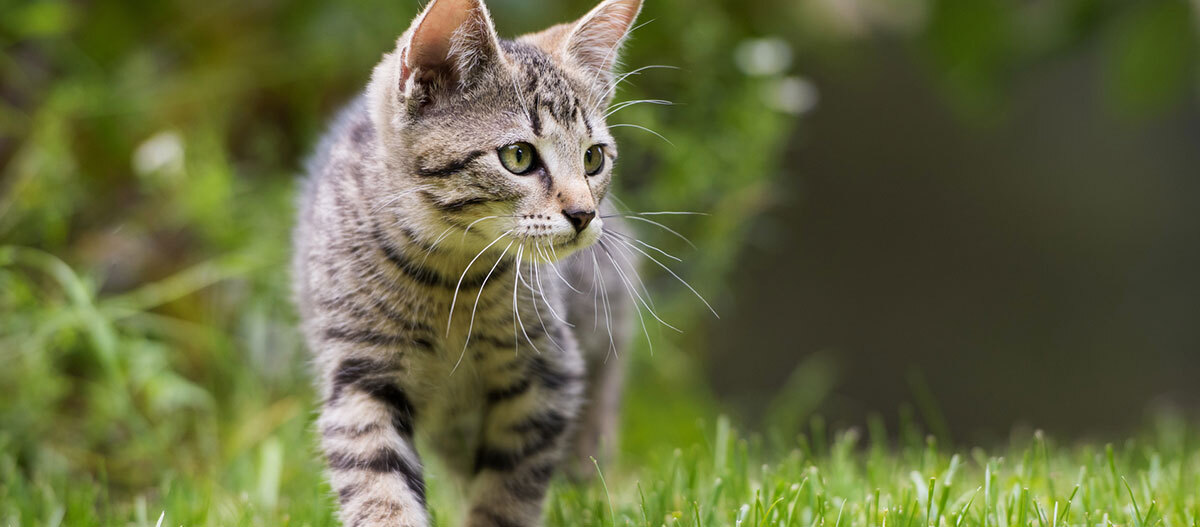
Outdoor or house cat?
Except for naked cats, all cats are naturally suitable for the outdoors. If you work full-time, you should choose an outdoor cat, if possible: The cat will get exercise during the day and can go hunting and socialise with neighbouring cats. House cats, on the other hand, get bored quickly, especially if they don’t have any other cats around. Make sure they have enough things to do and toys that you replace regularly. Whether you choose an outdoor cat depends on your personal preferences, of course, but above all on your living conditions. If you live in the countryside, it is generally less dangerous for an outdoor cat than in a big city with lots of traffic. Nevertheless, there are also the notorious cat catchers or people who put out poisoned bait.
If you decide to have an outdoor cat, you should be aware that you can never be one hundred percent sure that nothing will happen to it outside. This also applies to the countryside, where natural enemies of cats, such as wild animals, lurk. As an alternative to letting your cat outside, you can make your garden or balcony cat-proof. Cat nets are suitable for this purpose and prevent the house cat from escaping.
If you choose an indoor cat, be prepared for all rooms to become the cat’s territory. House cats should have access to every room. They are curious by nature and want to explore everything. Therefore, it is better to cat-proof every room. Shelves should not be filled with your favourite vases, otherwise accidents can happen quickly. Poisonous house plants have no place in a cat’s territory either. Breeds that have less urge to be free are suitable as indoor cats, such as the Persian, Devon Rex, Birman or Ragdoll. These cats are rather calm and people-oriented.
What temperament are you looking for in your cat?
Which brings us now to the nature of cats. Would you like a cuddly cat that is affectionate and very people-oriented? Then several breeds come into play. Persian cats need a lot of cuddles and are very balanced cats. The Bengal cat also wants to be cuddled all the time. They follow you everywhere and are very social, even if their wild appearance does not suggest so. It also has a lot to “tell” and likes to meow. Homes that are not sound-proof are therefore rather unsuitable, unless your neighbours are also very communicative. The Sacred Birman is just as strongly related to her people. Quite untypical of the species, it even makes a point of pleasing you. It is therefore comparatively easy to train and cat-typical mischief rarely occurs to it. It also gets along well with children or other pets such as dogs.
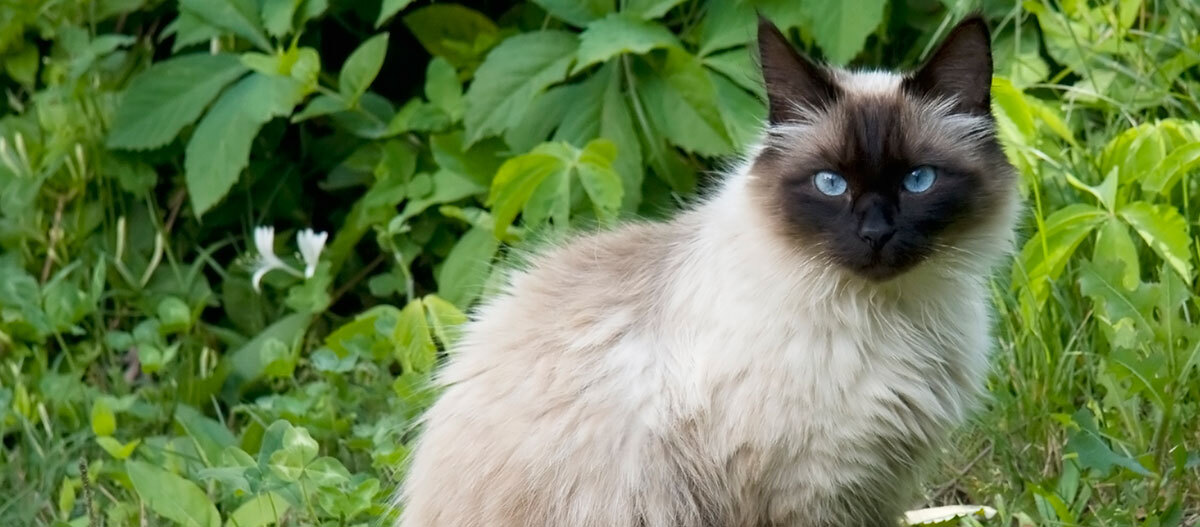
About dogs: The Maine Coon is also called a “dog cat” – and for good reason. It is very people-oriented, cuddly, playful and often likes to play fetch. You probably already know the cat from movies – as “Mrs Norris”, who accompanies the spiteful caretaker Argus Filch in two Harry Potter films. The Maine Coon is lively, likes to chase and rampage. It has a relatively big urge to move around and is happy when it is allowed to enjoy the outdoors. However, it is also suitable as a house cat, if you can offer it enough space. This social cat needs a lot of company and is happy to have a playmate.
A cat with dog-like affection is the Ragdoll. It has a gentle and balanced nature and gets along very well with small children. The rather cosy British Shorthair is also very adaptable and equally as happy as a house cat or as an outdoor cat. The Devon Rex may be suitable if you want a sociable cat. Due to its intelligence, it constantly demands new challenges, otherwise it gets bored. And you can imagine what can come out of that: a lot of mischief. It is playful and docile. The Russian Blue, on the other hand, is completely different. It likes to be left alone. Once you have gained its trust, it is very affectionate. It is rather shy and distant towards strangers. By the way, this also applies to the British Shorthair.
Hypoallergenic cat breeds are, for example, the Balinese, Javanese, Oriental Shorthair cats or the Rex species. Due to a special gene, their coat differs from that of other cat breeds and cat hair allergy sufferers react less strongly or not at all to these cats.
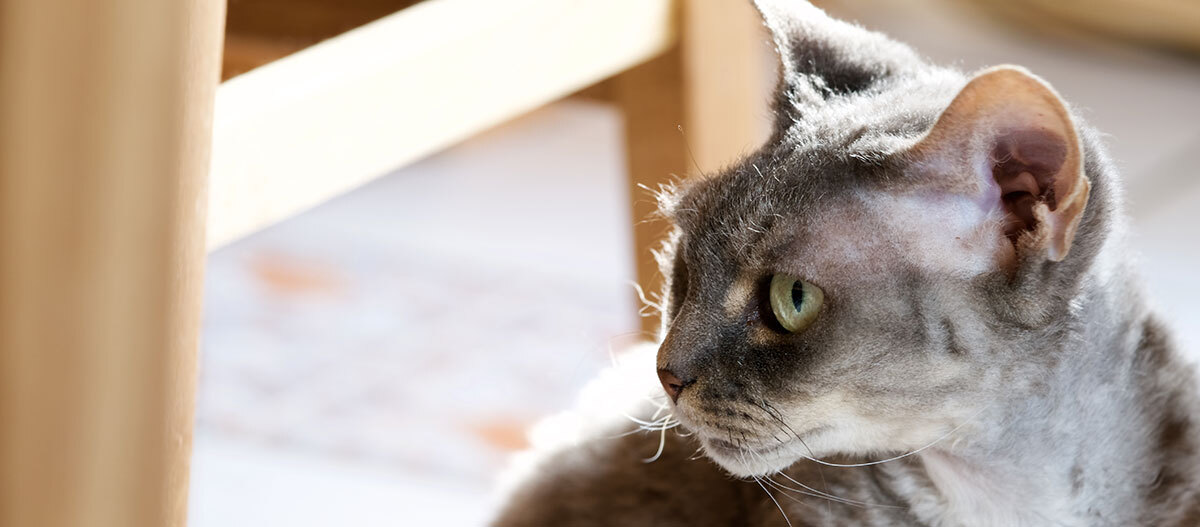
How much experience do you have in cat training?
There are no cats for beginners. However, there are cats that need more attention than others or are more stubborn. A pet for more experienced cat owners is, for example, the Siamese cat. It has a strong will and likes to assert it. If you are able to handle it, you will be rewarded with a cuddly cat that loves to play and follows you everywhere. Cats with long coats like the Persian cats are very high maintenance and should be brushed daily. Not every cat is willing to allow this. With a little patience and practice, however, even cat novices will succeed.
Another important consideration is whether you get a kitten or an adult cat. Kittens are easier to train, but require a lot of attention and time, especially in the early days. They have to learn to be house-trained and which furniture they would be better off not using as a scratching post. An adult cat – for example from a shelter – often knows this. But it may have other bad habits that you may have to break. However, you can get to know the cat during a first visit and ask the animal keepers in detail. Often shelter cats are very affectionate and grateful for their new home after the adaptation period.
How much time do you have for your cat and its care?
Like all pets, cats need activity – both mental and physical. This is especially true for house cats. Otherwise, they may develop bad habits and damage the furnishings.
The British Shorthair tends to be more comfortable and does not need as much activity as, for example, the Devon Rex. The Maine Coon is relatively active, but also likes to sleep and devote time to grooming. You should also plan time for grooming your cat. Most oriental cat breeds like the Siamese, Oriental Shorthair or Cornish Rex have very little undercoat and therefore do not need daily grooming. They also do not shed as much. The same applies to cats with a very dense coat like the Russian Blue. Grooming also includes regular trimming of the claws (especially for house cats) and cleaning of the eyes and ears, especially for breeds like the Persian cat that tend to have more lacrimation.
Male or female?
Whether you bring in a female cat or a male cat is entirely up to your preferences. Males are often more playful and wild during the growth phase, but usually become more relaxed and affectionate after neutering. Females, on the other hand, are a little more independent, but are much calmer from the beginning. There are cats that have a strong character and are very territorial. This depends less on the sex and more on the breed, upbringing and development.
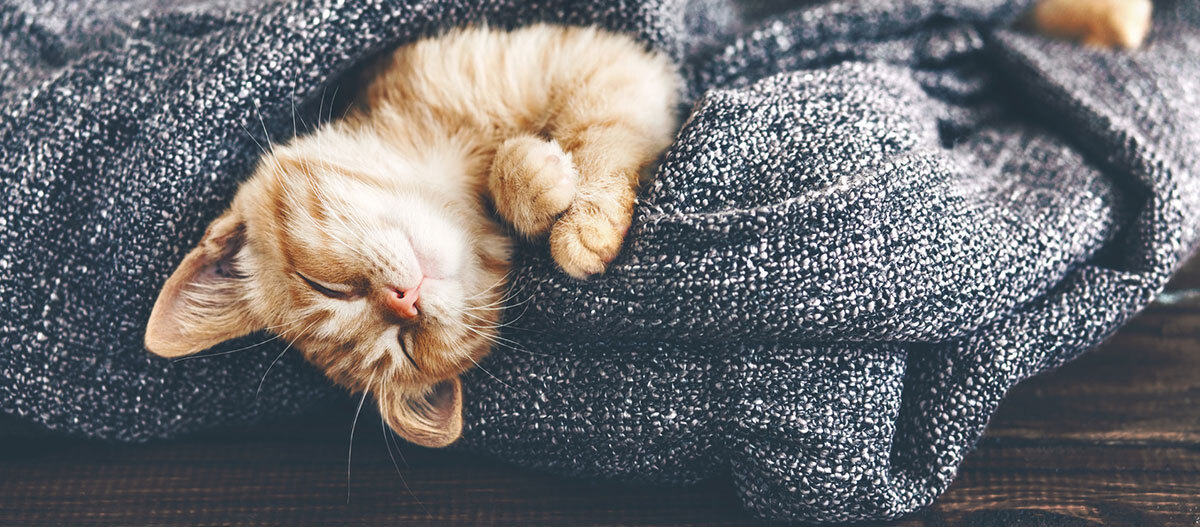
Solitary or several pets?
If you work full time and want a house cat, it is generally a good idea to look for at least two animals. Of course, this may seem like more effort at first. Nevertheless, cats need social contact with their humans or with other cats. Ragdoll cats, for example, can’t stand being alone. The British Shorthair also likes the company of other cats and does not like to be alone. You should take this into account.
How is the cat cared for while you are away?
With the right preparation, you can leave cats that are less people-oriented in the hands of friends or neighbours for a day or two. These generally include the European Shorthair, York Chocolate and Russian Blue. With very affectionate breeds such as the Bengal or the Siamese, however, this can be different. Basically, this depends on the cat’s nature. You would be better off not leaving the cat alone for a long time, if you notice, for example, that your Russian Blue is very fixated on you.
Care during a holiday is also important. Can a friend or relative take care of the cat? Very territorial animals are better left in their familiar surroundings. It helps if the carer takes an hour or two to keep the cat company in your home, playing with it and petting it.
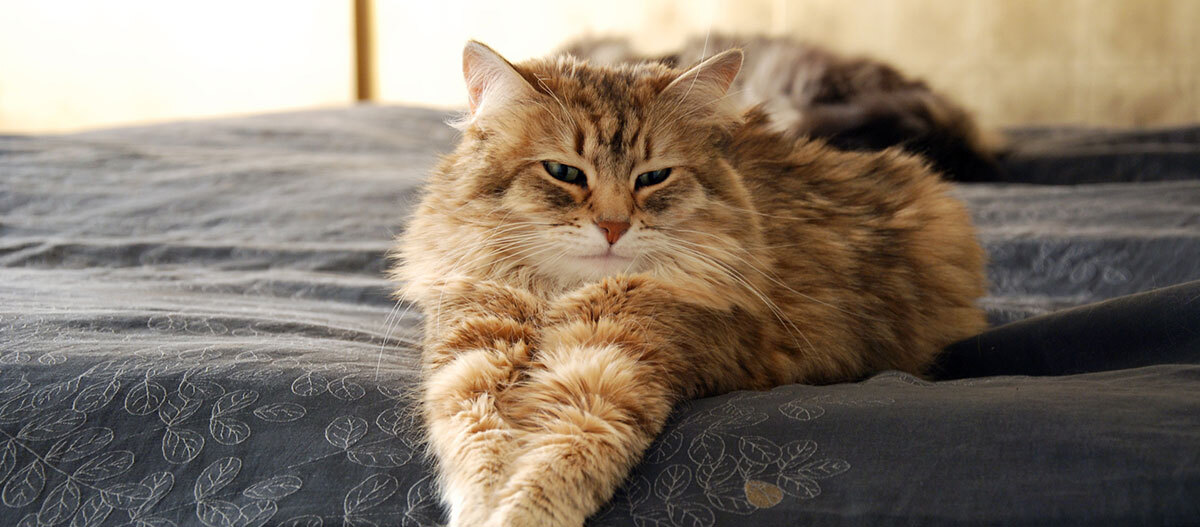
What costs should I expect for a cat?
In addition to basic equipment such as a litter tray, bowl, etc., you will also have monthly costs that you should not underestimate. Depending on the type of food and cat breed, you can expect to pay between 30 and 50 euros a month. In addition, there are vaccinations (e.g. cat cold, panleukopenia and leucosis), which cost around 100 euros for the basic vaccinations. Outdoor cats need additional vaccinations against rabies and FeLV as well as deworming every three months (costs between 100 and 140 Euros). For house cats, deworming is required every six months (costs around 50 Euros). In addition, you should always have some money under your mattress for injuries or even surgery costs. For this purpose, there is also surgery insurance for about 10 euros per month.
Take enough time to inform yourself comprehensively about the characters of different cats: This will help you find a long-lasting companion for you and your family.
Which cat is right for me?
Are you looking for an animal roommate and have you decided on a cat? That’s a good choice! The question that arises now: Which cat is right for me? In this video, we show you what you should look for when looking for a cat and how you can find the right cat for you.

